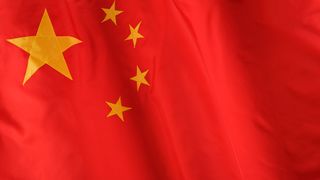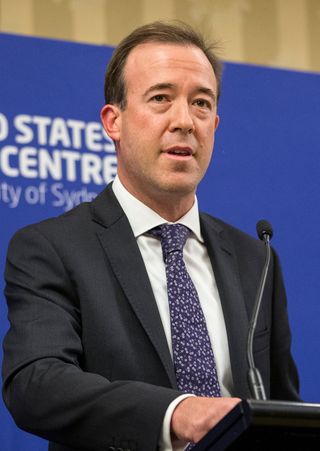The government response to this week’s tensions with China was understandable, and while it marks a new low in relations, it also confirms what was an existing trend.
Hawks in both capitals, already in full flight, will now soar higher on these gusty thermals of outrage. An aggressive Chinese nationalism will continue to blaze its ugly trail across the globe.
Australian sensitivities have been pricked at a delicate time for its military, with its slouch-hat nationalism badly bruised from the revelations of the Brereton inquiry.
The Australia-China relationship now finds itself where Beijing and Washington were at the onset of COVID-19, trading in tit-for-tat barbs that only reinforce negative stereotypes each has of the other.
As former Department of Foreign Affairs and Trade secretary Dennis Richardson said recently, Australia will probably be in China’s “dog house” for at least two more years, a judgment already solidifying.
That means more economic pain for Australian exporters and, if things deteriorate further, the pressing need for a proper calculation of the true impact on both countries’ trade. Now is the time for the government to level with the people on the potential costs to prosperity.
Amid this latest tempest, it is important to calculate where the existing trends in the relationship are taking us. China’s trade sanctions by spreading to coal and wine have only been growing in their seriousness.
It is clear Australia’s tendency to get ahead of the pack in “pushing back” gets under China’s skin. In most cases, Australian policy has been a necessary defence of sovereignty, but we have had the tendency under governments of both persuasions to shout about it.
Beazley’s warning
In 2012 Australia’s then ambassador in Washington, Kim Beazley, told incoming foreign minister Bob Carr that Australia’s commitment to host American marines in Darwin, its protests over Tibet and the exclusion of Huawei from the National Broadband Network meant that while Canberra was not exactly “alone in our actions”, it was “very prominent”.
It showed an awareness even back then that Canberra’s positioning at the forefront of issues related to Chinese unity and commercial interest riled Beijing.
Until the archives for this period are released, we can only speculate as to the thinking behind this approach: whether it was a policy designed to send an early signal to Beijing about what would and wouldn’t be tolerated; whether it was deemed sustainable; what domestic effects it might have should tensions with Beijing increase, and whether it might ultimately result in Australia becoming a target for Chinese economic coercion.
Surely now is the time, while China shows no signs of wanting to reset, for Australia to do more thinking about bringing all the various strands of its China policy together in a more comprehensive strategy.
This will neither reset relations nor provide the magic bullet of policy coherence, but it will assist in thinking through in a more systematic way, and with a broader range of stakeholders, what the future of the relationship might look like.
More provocation to come
This is all the more necessary since a hostile China has made it hard for the Morrison government to maintain its balance. It means policy is being made in emotional terms in the public arena.
It is unlikely this week’s tweet will be Beijing’s last provocation. Even if the political relationship lies in stasis, a steady drip of Chinese needling and coercion – rhetorical and economic – is likely. In his recent book, former Ambassador to China Geoff Raby wonders whether China has given up on Australia: a telling question.
Before this downward spiral, China consistently said it wanted a broad relationship with Australia across political, diplomatic and cultural fields. Throughout every tribulation with China, Morrison has invoked the “comprehensive strategic partnership” with Beijing.
Even though the ongoing fracas makes that arrangement more fragile, if not irrelevant, Morrison is signalling that he too still wants a broad relationship with China, and that Australian and American views on China aren’t necessarily identical. Indeed, he has been trying to extract Australia from the US/China problem.
Addressing the UK policy exchange recently, Morrison made it clear – more emphatically than before – that his end game was one of “happy coexistence” with China, not Cold War-style confrontation.
In that speech he also made a plea to the great powers for more room to manoeuvre – one which clearly fell on deaf ears in Beijing. It won’t necessarily resonate in Washington either, where a new administration, like the last, will want allies to do more. Great powers simply don’t dole out strategic space to others.
Allies have, however, rallied to Australia’s side. That is reassuring, but it will feed more Chinese suspicions about the West ganging up on it. This is China’s problem. It should have known before embarking on its hysterical offensives that this was going to be the result. That, too, speaks volumes about Chinese President Xi Jinping’s assertive brand of Chinese exceptionalism.
Now that Australia is in the thick of this new order, it needs to think afresh its strategic framework, a practice unfamiliar during its history. That is now the biggest task of all.






